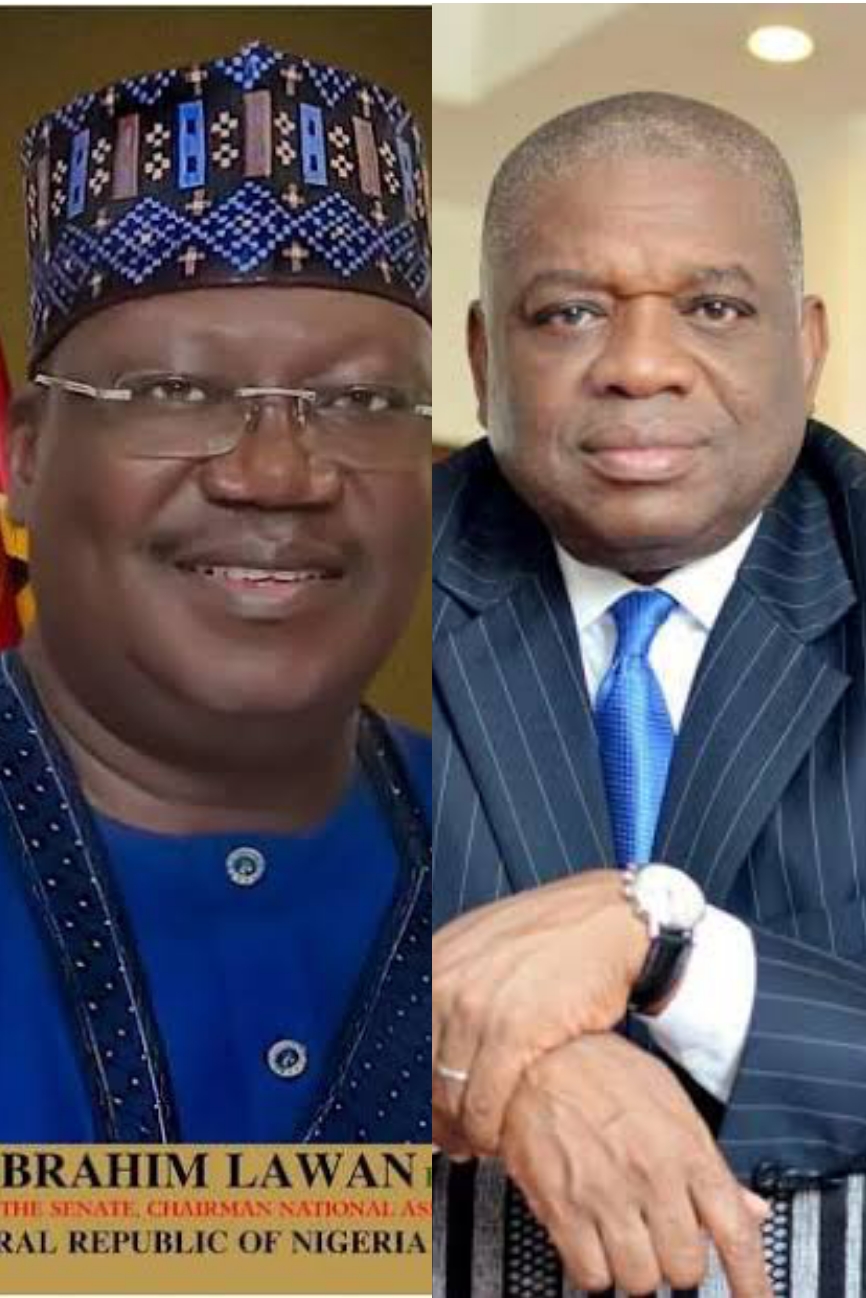SENATOR KALU, SENATOR LAWAN AND THE ROAD TO ASO VILLA FOR NDIGBO
Leading up to the 2023 general elections in Nigeria, I have been observing with keen interest intriguing political developments as individuals, groups and regions busy themselves jostling for positions in line with their personal and corporate desires. Since only interests remain constant in the realm of politics, the scenario has witnessed a lot of horse trading, arm twisting and as expected stomach-churning betrayal by erstwhile trusted allies.
Unfortunately, while some actors in the unfolding political drama are proactively playing out an already written script, others are only improvising reacting to moves initiated by the more prepared politicians. One subject that has become very thorny in the field of political discourse is the question of which zone should produce the president in 2023.
It is a known fact that the concept of zoning key offices in Nigeria is to eliminate unjust marginalization of some regions while ensuring accommodation and inclusiveness. It is a policy that specially favors the zones with lesser demographics in terms of population, especially when rotation of positions is done in line with constitutional provision on quota system or on the basis of zones.
Although different analysts proffer diverse opinions on the subject, political watchers seem to agree however that for equity and fairness the office of president should be zoned to either South East or North East in 2023. Those that hold this view base their argument on the scarce or minimal occupation of the country’s exalted offices by these eastern regions in contrast with other zones that have had shots on both presidency and vice presidency since commencement of the fourth republic.
However, despite being favored by the political history of Aso Rock since 1999, the South East unfortunately lacks the required structure to vigorously contend for the nation’s number one position with other better prepared zones in the 2023 general election. It is a known fact that every effort to annex political power in Nigeria is pursued through political parties, since such platforms are considered to be all purpose vehicles that deliver men to positions. Working with this mindset zones in Nigeria have continued to pursue their presidential aspiration through the instrumentality of political parties.
With the exception of 1999 when President Obasanjo of the South West emerged as a consensus arrangement by the past leaders of Nigeria as a way of appeasing the Yoruba nation over the death of Abiola, every other president has been a product of high level strategizing that took into cognizance the popularity and acceptability of the party fielding the candidate in the producing zone. In 2011 the Peoples Democratic Party (PDP) leveraged its acceptability within the South South region and the national visibility of Goodluck Jonathan in zoning presidency to the South Southern state of Bayelsa. The trend was repeated in 2015 when the popularity of Congress for Progressive Change (CPC) in North West and Action Congress of Nigeria (ACN) in South West influenced the emergence of both president and vice president from the two zones respectively. The fact of the matter is that party politics is not a father Christmas who freely gifts presidency just on sentimental grounds but a strategic engagement that weighs the capacity of desiring zones to deliver the massive support and concurrent high volume of votes required to win the exalted position in a keenly competed election.
It is therefore in the light of the foregoing that I see the recent stepping down of Senator Orji Uzor Kalu of South East for Senator Ahmed Lawan of North East for the 2023 presidential contest as a deft political move laden with great prospects for the Igbo nation going forward. It is a popular maxim that power is never given but usually contended for. Against the backdrop of the present standing of the All Progressives Congress (APC) in South East, where the party only controls two out of five states, it is a no-brainer that the ruling party will be reluctant to cede the position of president to the zone. While the argument that supports rotation for equity and fairness remain valid, it is also important to ensure the ability and capacity of the benefitting zone not only to deliver her entire region to APC but to also facilitate the capture of neighboring zones. I may not know Senator Orji Kalu but I am sure the Chief Whip decoded the hand writing on the wall and while his compatriots from the South East where still fantasizing on the prospect of benefitting from the zoning largesse of the ruling APC, he decided to play the politics of negotiation.
By endorsing the presidential ambition of Senator Ahmed Lawan, who is easily the most prominent APC stakeholder from the North East in the present dispensation, Senator Kalu has unwittingly commenced the process of matchmaking a mutually beneficial political marriage between the two Nigerian eastern regions. If well cemented, it is a relationship that can deliver top notch positions to the South East in 2023 and presidency in 2031. But to achieve this, leaders of Ndigbo must abandon politics of hindsight and join the likes of Senator Kalu in playing politics of foresight. They must see the futility of attempting to procure presidency just by subtle blackmail or through arm twisting and rather grab the opportunity presented by the recent overture made by Senator Kalu to commence building strong mutually beneficial bridges of political collaboration between the East of Northern Nigeria and the East of Southern Nigeria.
What is being prescribed here will involve massive reorientation for the political class in the Southeast, restructuring of political idiosyncrasies and strategic realignments in tandem with the future plan of assimilating, aggregating and channeling all efforts of Ndigbo towards the bigger plan of achieving a Nigerian president of South East extraction in 2031.
Prof Okey Nwata writes from Mbaise







